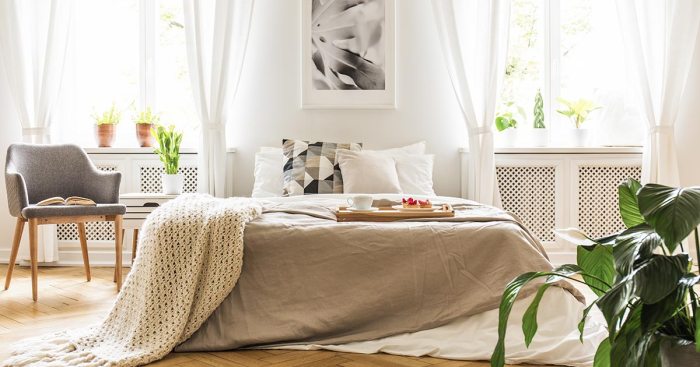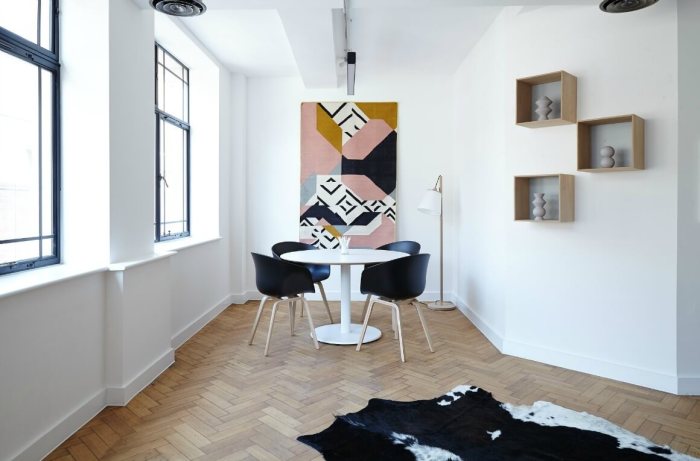Kicking off with Minimalist Lifestyle Tips, this guide will help you declutter your life and embrace a simpler, more intentional way of living. From minimizing stress to creating a calming home environment, get ready to elevate your well-being with these practical tips.
Benefits of a Minimalist Lifestyle

Living a minimalist lifestyle comes with a plethora of benefits that can greatly improve your overall well-being. By simplifying your life and focusing on what truly matters, you can experience a sense of freedom and contentment like never before.
Improved Mental Well-being
Embracing minimalism can have a profound impact on your mental health. By decluttering your physical space and eliminating distractions, you create a peaceful environment that promotes clarity and reduces anxiety. With fewer material possessions to worry about, you can also free up mental space to focus on personal growth and self-care.
- Reduced decision fatigue: With fewer choices to make and possessions to manage, you can conserve mental energy and enhance decision-making abilities.
- Increased mindfulness: Minimalism encourages living in the present moment and appreciating the simple joys in life, leading to greater mindfulness and emotional well-being.
- Enhanced creativity: A minimalist environment fosters creativity by eliminating distractions and allowing for a clear mind to generate new ideas and perspectives.
Stress Reduction and Increased Focus
Minimalism can help alleviate stress by promoting a more organized and intentional lifestyle. By prioritizing quality over quantity and letting go of excess, you can reduce feelings of overwhelm and create a sense of calm in your daily routine.
- Clutter-free living: A minimalist approach to home organization can reduce visual noise and create a serene space that promotes relaxation and focus.
- Financial freedom: By cutting back on unnecessary spending and focusing on essential purchases, you can save money, reduce financial stress, and work towards financial independence.
- Enhanced productivity: With a simplified environment and fewer distractions, you can boost productivity, stay on track with goals, and accomplish tasks more efficiently.
Practical Tips for Decluttering
Decluttering is a key aspect of maintaining a minimalist lifestyle. It involves removing unnecessary items from your living spaces to create a more organized and peaceful environment. Here are some practical tips to help you declutter effectively:
Step-by-Step Methods for Decluttering Living Spaces
- Start small: Begin decluttering one area at a time, such as a drawer or a closet, to avoid feeling overwhelmed.
- Use the 4-box method: Label four boxes as “Keep,” “Donate,” “Trash,” and “Storage.” Sort items accordingly.
- Declutter regularly: Make decluttering a habit by setting aside time each week to tackle different areas of your home.
- Consider the KonMari method: Follow Marie Kondo’s approach of keeping items that spark joy and thanking those you discard for their service.
Common Items to Declutter to Start the Process
- Clothing: Donate or sell clothes you no longer wear or love.
- Books: Keep only those you plan to read or reference in the future.
- Kitchen gadgets: Declutter duplicates or items you rarely use.
- Paper clutter: Sort through documents and dispose of outdated or unnecessary papers.
Importance of Decluttering for Maintaining a Minimalist Lifestyle
- Creates a sense of calm: A clutter-free space can help reduce stress and anxiety.
- Promotes mindfulness: By being intentional about what you keep, you become more mindful of your consumption habits.
- Fosters creativity: A tidy environment can inspire creativity and productivity.
Minimalist Home Design Ideas

Incorporating minimalist design into your home can create a sense of calm and organization. By focusing on simplicity and functionality, you can achieve a clutter-free and visually appealing living space.
Key Elements of Minimalist Home Decor
- Avoid clutter by keeping only essential items on display.
- Use a neutral color palette with a pop of color for accents.
- Opt for clean lines and simple shapes in furniture and decor pieces.
- Maximize natural light and open spaces to enhance the minimalist feel.
Tips for Choosing Furniture and Decor
- Invest in multifunctional furniture pieces to maximize space.
- Select furniture with hidden storage to keep clutter out of sight.
- Choose quality over quantity when it comes to decor items.
- Opt for sustainable materials to align with minimalist values.
Creating a Calming and Clutter-Free Home Environment
- Implement a regular decluttering routine to maintain a minimalist space.
- Utilize organizational tools like storage bins and baskets to keep items tidy.
- Incorporate plants and greenery for a touch of nature and tranquility.
- Focus on functionality and only keep items that serve a purpose in your home.
Sustainable Practices in Minimalism: Minimalist Lifestyle Tips
Incorporating sustainable practices into a minimalist lifestyle can have a significant impact on the environment. By reducing waste and embracing eco-friendly habits, minimalists can contribute to a more sustainable way of living.
Reducing Waste
- Avoid single-use plastics and opt for reusable alternatives such as metal straws, cloth bags, and glass containers.
- Shop in bulk to minimize packaging waste and bring your own containers to refill items like grains, nuts, and spices.
- Compost organic waste to reduce landfill contributions and create nutrient-rich soil for gardening.
Embracing Eco-Friendly Habits, Minimalist Lifestyle Tips
- Conserve energy by switching to LED light bulbs, unplugging electronics when not in use, and using natural light during the day.
- Reduce water consumption by fixing leaks, installing low-flow fixtures, and collecting rainwater for plants.
- Support sustainable brands that prioritize ethical sourcing, fair trade practices, and eco-friendly production methods.
Contributing to a Sustainable Way of Living
- By decluttering and minimizing possessions, minimalists consume less and reduce the demand for new products, leading to a decrease in resource extraction and manufacturing emissions.
- Minimalism encourages mindful consumption, promoting the purchase of high-quality, long-lasting items over cheap, disposable goods that contribute to landfill waste.
- Repurposing and upcycling items within a minimalist lifestyle not only extends the lifespan of products but also reduces the need for new purchases and minimizes waste generation.
